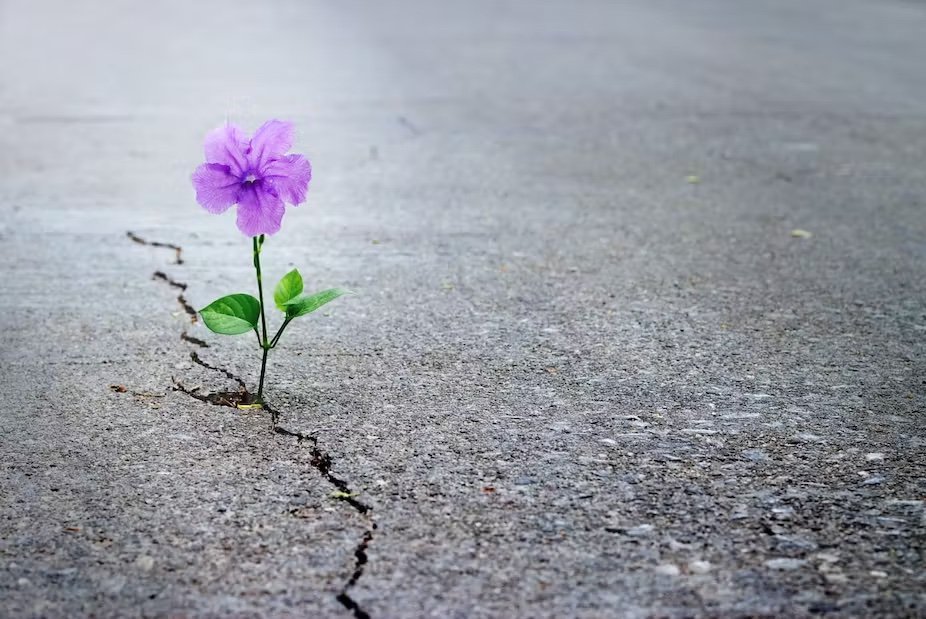By Thomas Daines
“Even darkness must pass. A new day will come. And when the sun shines it will shine out the clearer”
Have you been in as what has seemed to be the darkest of nights, a night so dark that the sun never seems like it is going rise? Deep down, however, was there a part of you that knew the sun was going to rise and that the night would end? I am willing to bet that even in the darkest moments, there are parts of us that know the sun will shine again. I am also willing to bet that hope is what got you through those dark nights. If you are in your own dark night now, hold on. It is much easier said than done, but have hope. If you are wondering how to have hope, this post will describe ways to have hope. But before that happens, I would like to share a personal dark night and the hope that got me through that night.
Growing up I always wanted to serve a mission for The Church of Jesus Christ of Latter-day Saints. This was one of my greatest desires in life. This mission would require leaving my home, family, and academics behind for 2 years while I served others and taught them about Jesus Christ. I had great hopes in mind for this mission. I could picture myself making new friends, serving others, and helping others find hope. About a year into the mission, I experienced some health challenges. I ended up having to come home due to a medical condition, which cut my mission short by a year. I was devastated. I felt let down and discouraged. I was uncertain of what the future held. Despite these feelings, there was part of me that knew everything would be okay. There was part of me that held on to hope. I remember I had taught people about hope almost every day and now was the time for me to practice what I preached. Now was the time to practice hope even in uncertainty, discouragement, and difficulty. What got me through this experience was the part of me that held on to hope. I hoped this experience would make me a stronger person. I hoped this experience would teach me valuable lessons. I hoped this experience would help me to become a more compassionate person. Although this experience felt like the darkest night, it did pass.
What is Hope?
Hope can be defined as “A positive motivational state that is based on an interactively derived sense of successful (a) agency (goal-directed energy), and (b) pathways (planning to meet goals)” (Snyder & Forsyth, 1991). In other words, hope is a positive expectation of the future. Hope is a motivational skill and like all skills, it requires effort and practice. Sometimes we may think hope is something you are either born with or not. The reality is that hope is something we choose to have. The agency aspect of hope means we set goals and have the determination to accomplish them. The pathways aspect of hope means we create alternative paths to accomplish our goals. When difficulties and challenges arise, hopeful people are able to adapt and overcome (Luthans et al., 2010). Hope gives individuals a sense of belief that they can accomplish their goals and figure out ways to overcome obstacles (Ciarrochi et al., 2007). Thus, hope is similarly related to optimism. Optimism can be defined as the ability to accept the full spectrum of inner experience and choose the perspective that maximizes well-being (Warren, n.d.). Like optimism, hope consists of choosing to accept the whole human experience, while also choosing an outlook that boosts overall well-being.
Health Benefits of Hope
Like other topics in positive psychology, hope can boost an individual’s overall well-being. Hope has been found to increase life satisfaction and can act as a buffer against negative and stressful life events (Valle et al., 2006). Research also shows that individuals with higher levels of hope are better able to adapt to life stress by using effective coping strategies (Horton & Wallander, 2001). Hope has also been found to be a buffer against the negative effects of depression (Gooding et al., 2011). High levels of hope have even been found to increase survival rates of head and neck cancer patients (Allison et al., 2003). Not only can hope increase life satisfaction and well-being, but it can also increase performance in other areas of life. A longitudinal study done among high school students found that high levels of hope were a predictor of higher grades (Ciarrochi et al., 2007). In a study by Luthans et al. (2010), individuals high in hope were found to show better athletic, academic, occupational, and health outcomes. The research shows how powerful hope can be in maximizing one’s overall well-being. Hope can impact all aspects of life from health to academics. Hope can help increase resilience, which allows us to cope with and overcome negative and stressful life events.
How to Cultivate Hope
Now that we’ve learned more about what hope is and its benefits on well-being, you may be wondering how to obtain hope. Research done by psychologist, Charles R. Snyder (2000), shows that hope can be obtained as early as childhood. Children learn by observation, therefore they can learn hope by observing hopeful individuals, such as parents, siblings, teachers, and peers. It is important for adults to be an example of hope, so the next generation can obtain and pass on that hope. Additionally, hope can be cultivated by making goals, harnessing uncertainty, managing attention, seeking a community, and looking at evidence (Mattis, 2022). To clarify, managing attention consists of be aware of the emotional stimuli you pay attention to. Looking at evidence also means that we gather evidence from around us and use it to guide our goals, plans, actions, and pathways. These are just a few ways one can start to cultivate hope to live a more meaningful life and have a better overall well-being.
Hope is a positive expectation of good things to come. This positive expectation does require us to act. It means really believing good things will come and taking action to achieve them. Additionally, hope means that we welcome all experiences, while choosing an outlook on life that boosts our well-being. Hope is what gives us strength to adapt to the obstacles we face in life. Hope gives us strength to keep going and find new ways to accomplish our goals. Hope is something everyone can acquire, just like any skill. In order to cultivate hope we can set goals, embrace uncertainty, manage attention, seek a community, and look at evidence. Hope can have profound impacts on our well-being. Hope can increase life satisfaction and performance in many areas of life. Hope can guard us from the negative events and stressors of life. Hope is what gets us through the darkest of night.
“Hope lies in dreams, in imagination, and in the courage of those who dare to make dreams into reality”
References
Allison, P. J., Guichard, C., Fung, K., & Gilain, L. (2003). Dispositional optimism predicts survival status 1 year after diagnosis in head and neck cancer patients. Journal of Clinical Oncology, 21(3), 543–548. https://doi.org/10.1200/jco.2003.10.092
Ciarrochi, J., Heaven, P. C. L., & Davies, F. (2007). The impact of hope, self-esteem, and attributional style on adolescents’ school grades and emotional well-being: A longitudinal study. Journal of Research in Personality, 41(6), 1161–1178. https://doi.org/10.1016/j.jrp.2007.02.001
Gooding, P. A., Hurst, A., Johnson, J., & Tarrier, N. (2011). Psychological resilience in young and older adults. International Journal of Geriatric Psychiatry, 27(3), 262–270. https://doi.org/10.1002/gps.2712
Horton, T. V., & Wallander, J. L. (2001). Hope and social support as resilience factors against psychological distress of mothers who care for children with chronic physical conditions. Rehabilitation Psychology, 46(4), 382–399. https://doi.org/10.1037/0090-5550.46.4.382
Luthans, F., Avey, J. B., Avolio, B. J., & Peterson, S. J. (2010). The development and resulting performance impact of Positive Psychological Capital. Human Resource Development Quarterly, 21(1), 41–67. https://doi.org/10.1002/hrdq.20034
Mattis, J. S. (2022, October 25). 5 strategies for Cultivating hope this year. The Conversation. Retrieved April 18, 2023, from https://theconversation.com/5-strategies-for-cultivating-hope-this-year-152523.
Snyder, C. R., & Forsyth, D. R. (1991). Handbook of social and clinical psychology: the health perspective. Choice Reviews Online, 28(11), 28–6501. https://doi.org/10.5860/choice.28-6501
Snyder, C. R. (2000). Handbook of hope: Theory, measures, and applications. In Academic Press eBooks. https://ci.nii.ac.jp/ncid/BA46727157
Valle, M. F., Huebner, E. S., & Suldo, S. M. (2006). An analysis of hope as a psychological strength. Journal of School Psychology, 44(5), 393–406. https://doi.org/10.1016/j.jsp.2006.03.005
Warren, J. (n.d.). Optimism. My Best Self 101. Retrieved April 17, 2023, from https://www.mybestself101.org/optimism.




